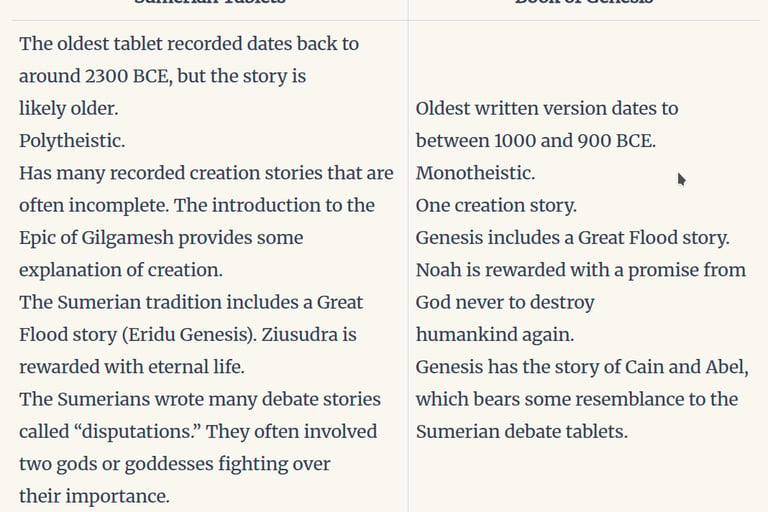An exploration of truth and the ways that we can deal with it.
More thoughts on Gods
Further thoughts on this fascinating subject, trying to piece everything together.
AI RENDITION ARTICLES
Van Overboard /ChatGPT AI
4/15/20253 min read
When Primitive Meets Advanced: The Hidden Hand of Civilizations
What happens when a primitive civilization encounters a vastly more advanced one?
Historically—and logically—the advanced party rarely enters without an agenda. They might seek resources, expand their knowledge, or pursue something far more veiled and strategic. Often, their intent hinges on control or influence, though sometimes it's framed as empowerment. The crucial point is: the less advanced group is seldom let in on the full picture.
Echoes in History
Has this happened before? If so, where is the proof?
Our earliest records are fractured and incomplete—fragments etched into stone, transcribed onto scrolls, or passed down in religious texts. Anything before that is inferred through archaeology and geology, tightly filtered by those who decide what reaches the public eye.
When religions emerged, they became the gatekeepers of knowledge. Most major faiths discourage inquiry beyond doctrine. The divine is to be accepted, not understood. Access to spiritual or cosmic knowledge is restricted, reinforcing systems of control. Under these paradigms, "freedom" is conditional, tethered to obedience.
The Nature of “Gods”
From a religious lens, questioning God is taboo. Faith is non-negotiable. But from a logical, historical view, the idea of gods often emerges when something surpasses human understanding. Ancient civilizations witnessing natural phenomena, celestial alignments, or inexplicable events naturally filled the gaps with mythology. Over time, translations, interpretations, and cultural agendas reshaped those stories.
What began as an attempt to describe the unknown became systems of belief, often enforced with violence or coercion. Earlier religions and their adherents were branded heretics if they didn’t conform to the new narrative.
The Reliability of Recorded History
Written history isn’t immune to bias. In fact, it's soaked in it. Victors write the records. Politicians, religious leaders, and conquerors have always shaped the story to suit their needs.
Even within a single human lifetime, our memories distort events to fit a personal narrative. Apply that distortion over generations, and you begin to see why recorded history often reads like a heavily redacted film adaptation of a much older book.
One God to Rule Them All
The transition from polytheism to monotheism is one of the clearest signs of religious engineering. Unifying a civilization under one god is far easier to manage than juggling multiple deities, each with competing ideologies.
The Roman Empire understood this well, repackaging older beliefs into a streamlined system that served both spiritual and political needs. Over time, the stories were revised, names changed, and key details excluded or adapted.
The Great Flood and a Possible Reset
Many religions speak of a great flood. Geological evidence supports such an event, placing it between 7,000 and 13,000 years ago, possibly aligning with the Younger Dryas.
Could this flood have been intentional? A reset triggered by forces—natural or otherwise—to cull a population, wipe a slate clean, or erase a "failed experiment"? It's a chilling, but not implausible, idea.
Encounters with the Advanced
There are ancient structures on Earth that defy simple explanations. The pyramids, for instance, showcase a level of engineering far beyond what we credit to their supposed time period. Theories range from astronomical alignments to power generation systems, the latter even explored by Tesla himself.
Some believe the pyramids weren’t built by Egyptians, but rather found and repurposed by them. The absence of hieroglyphs on the Great Pyramid supports this theory.
If other civilizations—terrestrial or otherwise—visited us, they may have left behind traces of knowledge, technology, and even genetic influence.
DNA, Creation, and Hybrids
One theory suggests that humans were genetically modified or selectively bred by an advanced species—perhaps from early hominids or even across species lines. This aligns with stories like those of the Nephilim: the supposed offspring of "fallen angels" and human women. Perhaps these myths were simplified explanations for genetic experimentation.
The concept that we are a part of God—or a reflection of a higher source—might hold more literal truth if our DNA carries remnants of another civilization. We could be a hybrid species, designed with purpose.
In biblical times, humans reportedly lived for hundreds of years. Did we once have a higher biological potential? Were we later re-engineered to live shorter lives—to limit our evolution or reduce our threat to those more powerful?
The Mechanized Mind
It’s also possible that some civilizations are only partly biological—cold, calculating, synthetic entities with a singular focus. They might not understand emotion, balance, or the natural rhythms of ecosystems. Their view of life could be utilitarian: manage, manipulate, discard.
Contrast that with nature: a finely tuned system where life adapts, evolves, and finds harmony over millennia. We see unique species develop in isolation, like flora in a sealed-off Japanese valley—life shaped by environment, not by interference.
The Mirror We Present
To primitive tribes, a helicopter overhead is a god in a metal bird. Imagine how we must have looked to ancient people, descending from the sky, clad in strange suits, speaking in foreign tongues.
Maybe we were the gods once. Or maybe we were visited by those who still play god today—shaping our past, limiting our future, and editing the story as they go.
All we can do now is read between the lines. Seek the contradictions. Follow the symbols. And never stop asking who—or what—truly writes our history.


